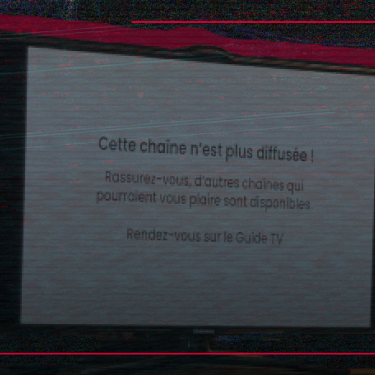Banned Russian TV channel was still available in France, RSF reveals

As a result of an investigation by Reporters Without Borders (RSF), a French-owned company has only just stopped providing subscribers in France with access to Channel One Russia, a Russia state-owned TV channel also known Perviy Kanal, although the European Union banned this key Kremlin propaganda outlet more than a year ago.
It was not until yesterday (4 March) that French internet and TV provider SFR, finally dropped Channel One Russia from the “Best Russian Channels”, a set of Russian channels packaged by Thema, a subsidiary of media conglomerate Canal+ owned by French billionaire businessman Vincent Bolloré. Until then, the package which included Channel One Russia was accessible for 7.90 euros a month.
The European Union added Channel One Russia to the list of banned TV channels on 16 December 2022 as part of the ninth batch of sanctions adopted since Russia’s invasion of Ukraine.
Neither SFR nor Thema can claim it did not know or understand because the European Council spells out the scope of the prohibitions very clearly on its website. It says: “They cover all means of transmission and distribution in or directed at EU member states, including cable, satellite, Internet Protocol TV, platforms, websites and apps.”
“RSF's investigation reveals that a channel under European sanctions was nevertheless accessible until a few days ago in France. Since the invasion of Ukraine in 2022, this channel has stepped up dishonest reporting, comments inciting hatred, and justification of the war in Ukraine. We urge French operators and Thema to offer free and independent Russian channels, as the satellite operator Eutelsat has just begun doing at RSF’s initiative with the Svoboda channel pack.”
It was the Diderot Committee – a French collective founded by two media experts that promotes the free flow of information – that told RSF that the Thema site was offering banned Russian TV channels. RSF proceeded to contact every provider of online access to TV channels, discovering that Free, Orange and Bouygues stopped carrying Channel One Russia several months ago but SFR was still offering it to its customers, as RSF established from a commercial offer obtained from SFR customer service and from a subscriber to the “Best Russian Channels” pack by SFR.
Thema’s senior vice-president for multicultural and digital distribution, Timothée Vidal, told RSF that the company’s site had not been updated. Asked on 1 March why SFR continued to broadcast a banned channel as part of a contract with his company, he said he was “surprised.”
RSF repeatedly sought an explanation from the press department at Altice France, the French media company that owns SFR, without obtaining a response. But the channel was suddenly removed from the Russian channel pack yesterday (4 March), as a subscriber confirmed.
Channel One banned, but Svoboda available
Channel One Russia is an important part of the state’s disinformation arsenal in Russia, where TV continues to be a very influential medium. Since the invasion of Ukraine, Russian TV has increased propagandistic, misleading, homophobic and hate-filled content, as RSF and the Diderot Committee demonstrated when they persuaded the French broadcasting regulator ARCOM to order the satellite operator Eutelsat to stop broadcasting three Russian propaganda channels including Channel One Russia to several European countries.
On the second anniversary of the start war, Channel One Russia falsely claimed that the growth of Ukraine's agricultural exports was behind clashes between farmers and police at an agricultural show in Paris during of a visit by French President Emmanuel Macron. A protest about the impact of inflation in Belgium was similarly misrepresented as a massive protest movement against the aid provided to Ukraine.
To provide access to reliable news sources to the inhabitants of regions flooded with disinformation and propaganda, RSF launched a satellite TV and radio pack today (5 March) in partnership with the Diderot Committee.
Called “Svoboda,” it is being operated by Eutelsat and is dedicated to the dissemination of independent news and information to Russian-speaking audiences. It already includes nine Russian-language TV channels and radio stations that are being broadcast to Russia, Belarus and the occupied territories in Ukraine, and to the Baltic countries.
